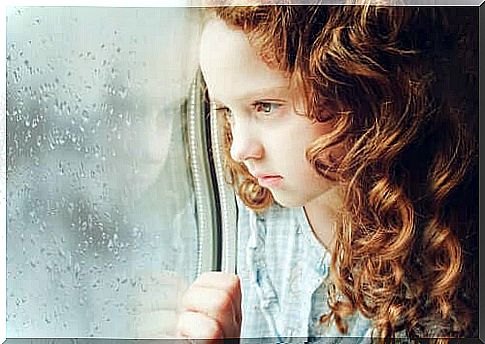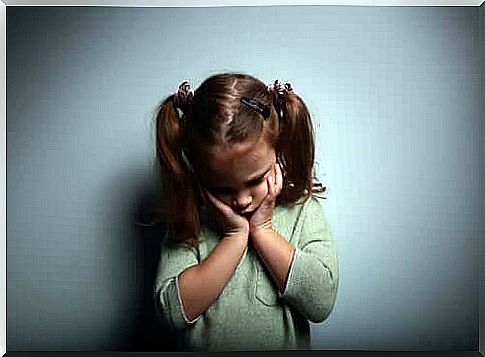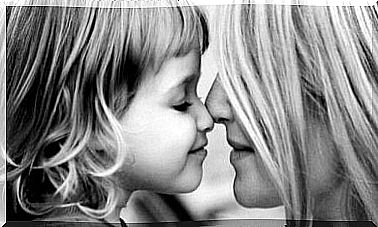Feelings Of Emptiness And Loneliness In Children

Feelings of emptiness and loneliness are quite common. We are sure you have experienced them at some point. The question, however, is whether you can recognize them in your children? They also feel hopeless, alone and restless, even though there is no obvious reason for it.
This is a difficult sensation to describe, but those who have experienced it can easily recognize it. It is the feeling that our life is meaningless and lacks a solid purpose, a goal. Do you wonder if feelings of emptiness also affect children? Keep reading to find out!
Feelings of emptiness and loneliness in children
Children feel empty and alone, just like adults. The causes of such anxiety are much more similar to the emotions that adults experience than we think.
For example, we all suffer when we do not feel accepted by our close circles. As a result, we develop the usual feeling of emptiness that we simply cannot fill or do not know how to deal with. The same thing happens with children.
Many children do not feel affection from their dependents, which leads them to develop an emotional vacuum that in many cases ends up being an affective deprivation syndrome. There is a psychological imbalance that occurs when the child suffers from emotional deprivation. Thus, they express it with hostile behavior towards their associates. Also through feelings of addiction, anxiety, jealousy and dissatisfaction or the need for constant devotion.
As parents, nothing hurts us more than knowing that our children feel that way. Therefore, there are some things we can do about it to try to prevent them from feeling emotionally empty. As parents, we must try to make our children feel as safe and loved as possible.
How to prevent feelings of emptiness and loneliness in children?

It is true that sometimes, no matter how hard we try, it is difficult to coordinate our schedule with our children. Our daily duties, work schedules, French lessons, gym, sports and homework greatly affect our family life.
Sometimes all we need is a fixed agenda to reconcile our lives and the lives of our children. This lack of time has an enormous impact on the need to take care of family connections and ties.
Here are some guidelines for becoming aware of this reality and avoiding it:
- Make your kids feel important and show them how much you love them. It is important that children feel loved and important. Phrases like “I love you so much” or “I feel good when you hug me when I get home” will make them feel good and will increase their well-being. In addition, you will promote a safe, affective bond and improve their sense of belonging.
- Spend quality time together. Give them your full attention. Turn off your cell phone. Have real, intimate and transcendent conversations. Talk about life, dreams and goals. Sharing your thoughts with them will cause them to share theirs with you.
- Do nice things for your kids other than buying or giving them things. Getting your time is valuable to them, but it must be quality time. There are many simple things you can give them that do not involve investing time or money. For example, you can call them on your way home, leave a note for them in the morning wishing them a good day, or pick them up before their leisure activities to do something unexpected with them.

In children, emotional emptiness is more related to the lack of adequate love ties and not so much to a lack of meaning or to feel uncertain about the future. (Unfortunately for them, it comes in the end).
When a child feels safer and more loved, it will therefore be easier for them to develop healthy self-confidence and self-knowledge. This will also lead to a sufficient sense of security in their relationships, which will probably make them more resilient adults. For the resilience! It is an incredible skill that will undoubtedly help them face life with a better attitude.









